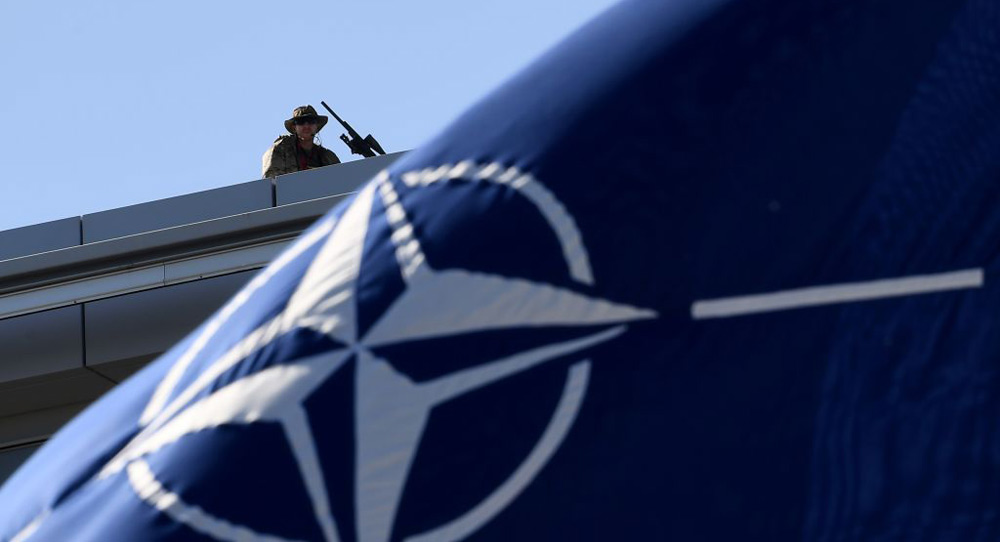When a leading NATO member makes public the military positions of another ally deep inside a war zone, possibly endangering those forces, NATO remains silent.
When NATO members undermine democratic values and the basic tenets of the rule of law, including an independent media and judiciary, they are not taken to task.Over the past few years—and in particular, over the past nine months—several members of the U.S.-led military alliance have run roughshod over NATO solidarity and the basic principles upon which the alliance was founded in April 1949.
Turkey, for example, actually revealed the positions of French troops in northeast Syria. Since 2016, according to the AFP, these forces have been based in areas controlled by the YPG/PKK. The Kurdish YPG dominates the Syrian Democratic Forces (SDF).
President Recep Tayyip Erdoğan recently sharply criticized his French counterpart, Emmanuel Macron, for meeting SDF leaders in Paris and for offering to mediate between the SDF and Turkey. For Erdoğan, that was tantamount to negotiating with the Syrian branch of the PKK, which Ankara insists is a terrorist organization.
Yet Erdoğan went further. A Turkish news agency revealed the positions of the French forces. What sort of solidarity and discretion does that amount to, when one ally could endanger another?
Closer to home, NATO has to contend with Poland and Hungary undermining the independence of the judiciary and an independent media, not to mention that way in which nongovernmental organizations in Hungary have been vilified and refugees refused shelter.
Then there is the corruption in the alliance’s newest member, Montenegro, and the persistent attacks on the judiciary and anticorruption watchdogs in Romania.
Altogether, these examples do much to undermine NATO as an alliance, whose members pledge “to safeguard the freedom, common heritage and civilization of their peoples, founded on the principles of democracy, individual liberty, and the rule of law. They seek to promote stability and well-being in the North Atlantic area.”
Back in the last 1940s, the rule of law and democracy didn’t matter that much for NATO. The alliance’s priorities focused on the security, safety, and protection of its members (in short, the West). When Greece and Turkey joined NATO in 1952, their membership was about bolstering the defenses of this part of Europe against the Soviet threat. Geostrategic interests and strengthening the anti-Communist bulwark took precedence over the rule of law and strong, democratic, accountable institutions.
In recent years, when it’s come to countries wanting to join NATO, there has been more emphasis on values and democracy. But in its own home, NATO’s record for upholding basic principles is far from stellar. And its reluctance to criticize its allies exposes some of its intrinsic weaknesses.
The first is that NATO countries are loathed to criticize each other, either publicly or even behind closed doors in the North Atlantic Council (NAC)—the forum in which alliance ambassadors meet. The NAC got its fingers badly burned during the U.S-led war against Iraq in 2002. Apart from NATO countries being so bitterly divided over the invasion, NAC sessions often ended up in shouting matches between the American and French ambassadors. NATO’s fragility was exposed for all to see.
Yet, wasn’t it necessary for ambassadors to speak out? Yes, they are constrained by their own governments. But if NATO could not—and did not—speak out against torture, or renditions, or the illegality of the U.S. invasion of Iraq, or what is now happening to Turkey’s democratic institutions, then what does that say about the alliance’s principles?
The second weakness is that NATO doesn’t have formal mechanisms to suspend an ally. And even if it wanted to discipline a member, that would require consensus.
Russia, for one, would be delighted if NATO washed its dirty linen in public. Ever since its establishment, the Kremlin’s goal has been to divide and weaken NATO with the eventual aim of getting rid of it. But the fact that countries still want to join NATO show their need for security and reassurance. Russia’s annexation of Crimea and its proxy invasion of eastern Ukraine confirmed why countries want to sign up to the alliance.
NATO, however, does have an informal mechanism at its disposal. It is intelligence sharing—or the lack of it. One of the reasons why the big member states of NATO do not share intelligence across the board is because of the lack of trust, the feeling that the information will be passed on to non-NATO members (meaning Russia and China and other countries).
Yet none of the above legitimates a silence over the rule of law, over the erosion of basic democratic principles, and over how some allies are endangering others. NATO, it’s time to move on. What about scrapping some of the many talking-shop committees and instead creating a special ombudsperson responsible for NATO’s core principles?








